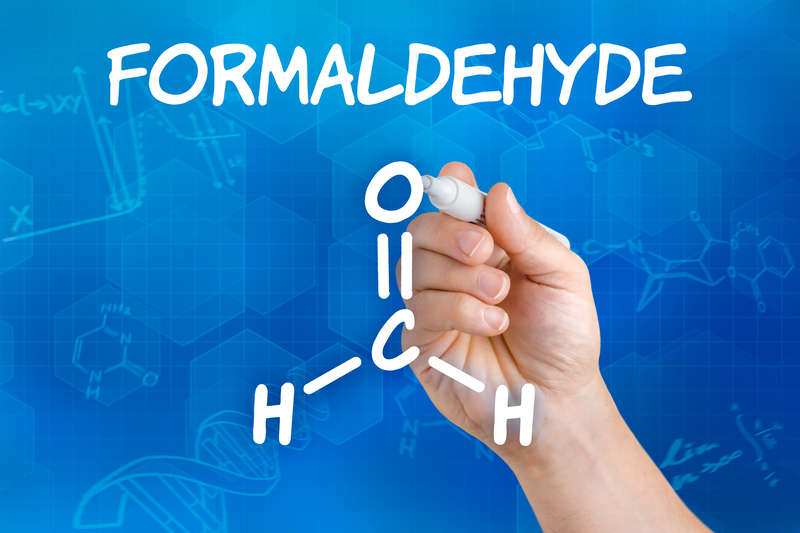Optimize Home Freshness by Getting Rid of Pet Odors
Posted on 10/06/2025
Optimize Home Freshness by Getting Rid of Pet Odors: A Comprehensive Guide
Every pet lover knows the joy and companionship that furry friends bring, but they also understand the challenge of maintaining a fresh and clean-smelling home. Pet odors can be persistent, and if left unmanaged, they can permeate fabrics, carpets, furniture, and the very air of your living space. Optimizing home freshness by getting rid of pet odors doesn't have to be a struggle. In this comprehensive guide, you'll discover practical strategies, effective cleaning techniques, and smart preventive measures to keep your house smelling fragrant and inviting.

Understanding the Source of Pet Odors
Why Do Pets Cause Odor Issues?
Pets, especially dogs and cats, release natural oils, shed hair, and sometimes have accidents that contribute to unwelcome smells in your home. These odors can linger on various surfaces such as floors, upholstery, bedding, and even in the air itself. A combination of pet dander, fur, saliva, and bodily fluids can create a complex mix of odors that are tough to eliminate with basic cleaning.
- Pet dander: Tiny, even microscopic flecks of skin shed by cats, dogs, rodents, birds, and other animals with fur or feathers.
- Uric acid: Found in pet urine, this compound clings to surfaces and is difficult to remove without specialized cleaning agents.
- Saliva and oils: Pets' grooming habits and natural oils can get transferred to carpets, blankets, and furniture.
Areas Most Affected by Pet Odors
- Carpets and rugs
- Soft furniture like sofas, recliners, and cushions
- Pet bedding and toys
- Cat litter boxes
- Dog crates and kennels
- Hard floors (wood, tile, laminate, etc.)
Proactively targeting these spots is key to optimizing home freshness and eliminating pet smells at their source.
Top Strategies for Removing Pet Odors from Your Home
1. Establish a Consistent Cleaning Routine
The foundation for any pet odor elimination routine is regular and thorough cleaning. Dirt, fur, and dander build up quickly, and neglecting your household chores for even a couple of days can let odors accumulate.
- Vacuum daily or every other day: Use a vacuum cleaner equipped with a HEPA filter to capture pet hair, dander, and dust particles. Pay special attention to high-traffic areas and under furniture.
- Wash pet bedding and blankets weekly: Use hot water and a mild, pet-safe detergent to deep clean fabrics that your pet frequently uses.
- Clean floors and surfaces: Mop hard floors with a mixture of water and a little vinegar or a pet-safe enzymatic cleaner to neutralize odors.
2. Use Odor-Neutralizing Products
One of the best ways to optimize home freshness with pets is to utilize products specifically designed to neutralize, not just mask, pet smells.
- Enzymatic cleaners: These break down the proteins in pet accidents such as urine, vomit, or feces, eliminating the root cause of odor.
- Baking soda: A natural odor absorber. Sprinkle it liberally on carpets and upholstery, allow it to sit for 30 minutes, and then vacuum thoroughly.
- Pet-safe air fresheners: Many companies offer sprays and diffusers formulated to tackle pet odors while being safe for animals.
- Activated charcoal bags: Place these in rooms, near litter boxes, or inside pet beds--charcoal absorbs and neutralizes lingering smells.
3. Deep Cleaning Soft Furnishings
Fabrics hold onto pet odors and can require special attention. Regular deep cleaning helps ensure a fresh and inviting home environment.
- Steam clean carpets and upholstery: Rent or invest in a steam cleaner compatible with enzyme-based solutions and follow the manufacturer's instructions. This not only removes stains but also kills bacteria responsible for odors.
- Launder slipcovers, curtains, and throw pillows regularly: Small items can usually be machine washed. For larger pieces, consider professional cleaning once or twice a year.
4. Address Pet Accidents Immediately
Prompt action when your pet has an accident is critical in preventing odors from becoming embedded and difficult to remove.
- Blot, don't rub: Use paper towels or a cloth to absorb as much liquid as possible.
- Apply an enzymatic cleaner: These products digest the odor-causing compounds and are far more effective than basic soap and water.
- Avoid using ammonia-based cleaners: Ammonia smells similar to urine to pets and may encourage repeat marking.
5. Focus on Litter Boxes and Pet Resting Areas
Cat litter boxes can be the single strongest source of indoor odor if not regularly maintained.
- Scoop litter daily: Keep the box as free from waste as possible to reduce strong smells.
- Completely change litter often: Depending on the brand, change it entirely every 1-2 weeks and wash the box with mild soap and water.
- Choose the right litter: Clumping, odor-neutralizing, or natural litters are typically the most effective.
- Wash and replace pet beds: Every couple of weeks, thoroughly clean pet beds and line them with a removable, machine-washable cover.
Proactive Prevention: Keeping Pet Odors at Bay Long-Term
Regular Grooming for Your Pets
A clean pet is less likely to cause unpleasant household odors. Regular grooming not only benefits your pet's health, but also keeps smells under control.
- Bathe your pet: Depending on the breed and your pet's lifestyle, bathe them every 1-4 weeks using a pet-safe shampoo.
- Brush fur daily: Reduces shedding, dander, and the distribution of oils that cling to surfaces.
- Clean ears and trim nails: Untended ears and neglected paws can also harbor odors and bacteria.
Air Circulation and Ventilation
A stagnant home is a smelly home. Enhance ventilation to usher fresh air in and push stale, odor-laden air out.
- Open windows: Weather permitting, allow cross-breezes to freshen rooms regularly.
- Utilize exhaust fans: Particularly after cleaning, cooking, or during high-odor times like litter box changes.
- Air purifiers: Invest in a purifier with a HEPA filter and activated carbon layer for maximum odor removal.
Natural Remedies for Pet Odor Control
The Power of Vinegar and Baking Soda
Natural, chemical-free remedies are often just as effective as store-bought solutions. Baking soda neutralizes odors instantly, while vinegar cuts through oily residues and can deodorize hard surfaces.
- Carpet deodorizer: Mix baking soda with a few drops of essential oil (such as lavender or lemon), sprinkle on carpets, leave for 30-60 minutes, then vacuum.
- Vinegar spray: Combine one part white vinegar to one part water in a spray bottle. Mist on tiles, pet crates, and bedding, then wipe clean after a few minutes.
DIY Air Fresheners
Create simple, non-toxic air fresheners with everyday household ingredients:
- Lemon slices and rosemary simmering pot: Add to a pot of water and simmer on the stove to infuse your home with a light, refreshing scent.
- Gel air freshener: Dissolve gelatin in hot water, add baking soda and essential oils, pour into a jar, and cover with a breathable top.
Smart Home Solutions and Technology for Pet Owners
Robotic Vacuums and Smart Air Filters
Modern technology offers pet owners easy, efficient ways to reduce pet odors and hair.
- Robotic vacuums: Programmed to clean daily or as needed, robotic vacuums handle dander and fur consistently, preventing build-up and resulting odors.
- Smart air filtration systems: Some air purifiers now feature smart controls and automatic settings tailored to pet households, ensuring optimum freshness around the clock.
Pet-Specific Cleaning Appliances
Some companies manufacture washing machines or upholstery cleaners specifically designed for pet owners, with higher rinse power and fur-trap filters.
- Pet-friendly washing machines: These incorporate boosted cycles to remove hair and odors from bedding, towels, or clothing.
- Specialized spot cleaners: Handheld devices for treating small, accident-prone areas such as rugs or sofas.
When to Call in the Professionals
The Stubborn Odor Dilemma
Despite your best efforts, some pet odors can persist, particularly those deep set in walls, hardwood floors, or large furniture. In these cases, professional cleaning services offer deep extraction, ozone treatments, or even specialized restoration for severe issues.
- Professional carpet and upholstery cleaning: High-pressure steam or dry cleaning frequently removes embedded odors that home appliances cannot.
- Ozone generators: These can neutralize odors in entire rooms but should only be used by certified professionals while the home is unoccupied.
- Floor refinishing: For severe urine damage on wood or subflooring, sanding and sealing may be necessary.
Maintaining Consistent Home Freshness: Daily and Weekly Checklists
Developing consistent habits is the key to a long-lasting fresh-smelling pet home. Use these lists to stay ahead of potential odor problems.
Daily Habits
- Scoop litter boxes and dispose of waste
- Vacuum or sweep heavily-trafficked areas
- Wipe down surfaces your pet frequents
- Check and clean water and food bowls
- Open windows when possible for fresh air
Weekly Chores
- Launder pet bedding, throws, and washable toys
- Deep vacuum all carpets and rugs
- Mop hard floors with a deodorizing cleaner
- Brush and groom pets
- Check for any missed accidents or hidden messes

Frequently Asked Questions about Pet Odor Removal
Q: What is the #1 way to keep my house from smelling like pets?
Consistent cleaning, grooming your pet, and prompt attention to accidents are the best ways to keep your house perpetually fresh. Combine this with odor-neutralizing products and good ventilation.
Q: Are there any health risks associated with pet odors?
Persistent pet odors are usually unpleasant but can also indicate an accumulation of dander, bacteria, and mold, which may irritate allergies or asthma. Regular cleaning and air filtration help mitigate these risks.
Q: Does air freshener actually remove pet odor?
Most commercial air fresheners only mask smells temporarily. Look for options that neutralize rather than cover up odors, such as enzymatic sprays, baking soda, or activated charcoal.
Conclusion: Enjoy a Fresh, Inviting Home with Your Pets
Pet ownership brings joy and comfort, and it doesn't have to compromise the freshness of your home. By developing proactive cleaning habits, using the right products, leveraging smart technology, and maintaining a grooming schedule, you can eliminate pet odors effectively and consistently enjoy a pleasant, welcoming environment. Remember, optimizing home freshness by getting rid of pet odors is both an ongoing process and a rewarding one, letting you and your visitors always enjoy the feeling of a clean, comfortable home--pets and all!
Latest Posts
Create a Long-Lasting, Mold-Free Bathroom Ambiance
Effortlessly achieve a spring-feel home with our expert Deep Clean Checklist
Indoor Air Excellence: A Step Towards Better Living
Achieve Spotless Window Sills with Mould Eradication Techniques





